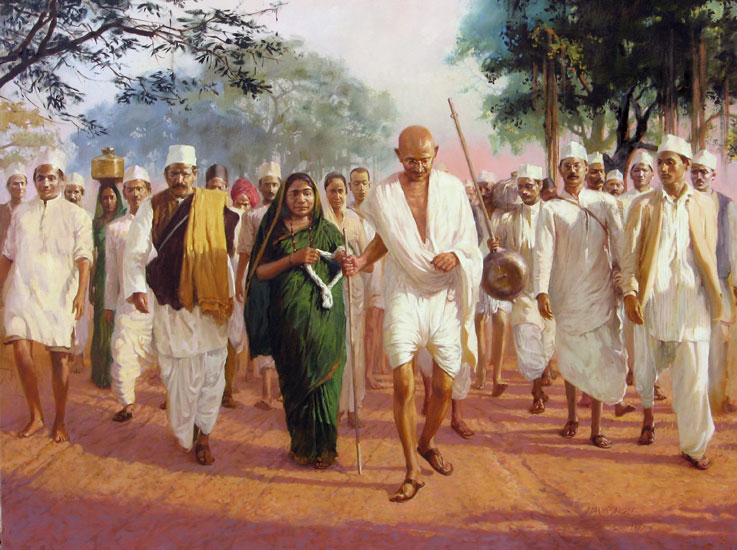There’s a lot one can learn about leadership from Mahatma Gandhi. After all, who better to teach us leadership than the man who led an entire country to freedom, right? And that too mostly barefoot. Granted, it would be a tad difficult to apply all of his teachings, and even more difficult to follow his example precisely. I mean, you don’t have to burn your shirt and pants, neither do you have to go on a hunger strike, nor do you have to be truthful a hundred percent of the time. Let’s leave all that self-sacrificing and selfless stuff for the pros shall we? But even so, there are a lot of lessons we can pick up which could be applied to our everyday lives quite well.

Embrace change
Now this might seem like a pointless truism to a lot of you. Embrace change? How can we not change, you might wonder? Well, there’s a little more to it than just that. Gandhiji famously told his followers that if he ever spoke two consecutive sentences which contradicted each other, they should go with the latter. Now this does not literally apply to two contradictory sentences being spoken consecutively, as doing so would be veering a lot more towards Trump-ism rather than Gandhism. However, what he meant was that you should embrace change even if that means going against a belief that you previously held to be true. This is because he was a self aware person and as such identified his own fallibility. So if you’re growing into someone you thought you never wanted to be, don’t shirk from that change. You are not betraying your ‘true self’, as yourself is always in flux, and so go with the change.

Listen first, Speak later
This might surprise many of you, but Gandhi was actually a fairly mediocre public speaker. He wasn’t blessed with natural oratory skills, but he could still arrest the attention of people. That’s because he had something greater than just the ability to speak well, he could listen well. He could listen to the problems faced by people, he could listen to oppositions, and he could also listen to the subtext beneath every word spoken by his enemies. While being just a flawless orator is a skill even a megalomaniac might very well possess. Hitler. Really listening to things you don’t even agree with, that’s the marker of a true leader.

Now this is a segue from one of Gandhi’s most famous characteristics — self sacrifice. He was imprisoned several times and he went on hunger strikes several times, all for the sake of the country. While self-sacrifice can be a lot to ask of people, a balanced alternative to it can be a spirit of ‘compromise’. Listen to what other people have to say, their opinions, their beliefs, be open minded to them, even if they rival your own, and if possible, then compromise such that both parties may reap the fruits of your graceful bowing.
Quiet Rebellion
Gandhi popularized, if not found, the Civil Disobedience and Non-Cooperation movements. While both of them were aimed at taking down the British government in an organized manner, derivatives of these techniques can be applied to daily living as well. Being a rebel-without-a-cause seldom leads to a favorable outcome, same goes for the ‘anarchist’. Often, if you don’t agree to something it is better to hold quiet rebellion to it, refusing to participate in something you don’t believe in. incremental change might not be as attractive as a complete overthrow of established norms, but it’s far more steady and reliable.

more of an impact.
These are just some of the lessons we can all learn from the Mahatma in order to be better leaders, be it domestically, professionally, or simply personally.







